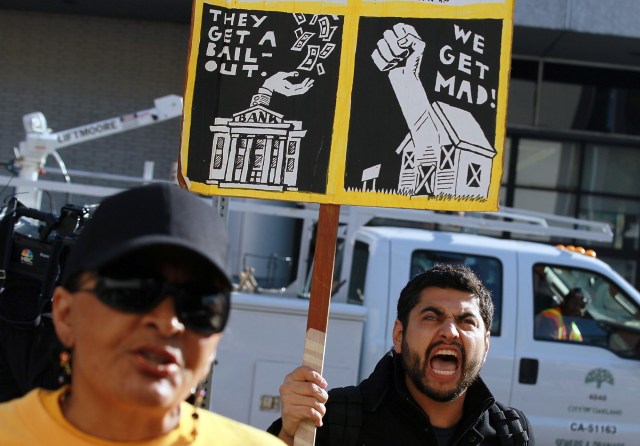
There’s a brilliant sequence in The Big Short (the 2015 film based on the book by Michael Lewis) in which the protagonists – high-flying financiers – venture out into the real world. Within the Wall Street bubble, the sub-prime mortgage market is still booming, but on the ground, amid cheaply financed (but nearly abandoned) housing developments, the signs of collapse are plainly visible. Our heroes are thus forewarned of the impending catastrophe: the 2007 ‘credit crunch’ and the global financial crisis that followed it.
But what became of those unsold, unsellable and abandoned houses? An eye-opening long-read by Alana Semuels in The Atlantic provides a substantial part of the answer:
“In 2010, at the height of the foreclosure crisis, the federal government watched nervously as hundreds of thousands of families lost their homes. Empty houses blighted neighborhoods, their shades drawn, their yards overgrown. Without some kind of intervention, federal officials worried, the housing market would continue in its free fall, prices would keep dropping for existing homeowners, and the economic recovery, already tenuous, would be imperiled.”
The US government therefore “incentivised Wall Street to step in”:
“It worked. Between 2011 and 2017, some of the world’s largest private-equity groups and hedge funds, as well as other large investors, spent a combined $36 billion on more than 200,000 homes in ailing markets across the country.”
Rather than re-selling once the economy recovered, the homes have been rented out via property management companies.
In theory, the efficiencies and expertise that should come from letting homes on a large scale should mean a better deal for tenants – compared to renting from private landlords with no more than a few properties. However, there’s more than one possible business model here.
Model A is to strive to provide the best service possible; model B is to provide the worst possible service you can get away with – finding inventive ways to skimp on repairs or stick tenants with extra charges. Where landlords are competing for high-earning and potentially litigious customers in prosperous areas, then model A is likely to predominate. But in rental markets where people have limited means and fewer options, model B (though immoral) becomes viable.
Of course, there are many examples of small-time landlords exploiting tenants too. However, these bit-players aren’t in a position to dominate the rental markets of entire neighbourhoods. Nor do they have the lobbying clout that big companies have (especially those in which major financial institutions have direct investments).
One can see why politicians are grateful to the major landlords. If they hadn’t taken over the management of so much unwanted housing then the state would have had to do it instead. For those who prefer market-led solutions or who merely doubt governmental competence, the new status quo looks like the least worst outcome.
Furthermore, one could also argue that up-market and down-market options are a general feature of consumer capitalism – and that it’s the job of any industry to cater to all budgets. As long as tenants get what they pay for, and no laws are being broken, what’s the problem?
However, housing isn’t like other markets. Whether one owns a home or rents it has profound consequences for long-term economic empowerment. Moreover, supply is notoriously inelastic, not least because the key input – land – is the most finite of resources. The expansion of the private rented sector in the US (and the UK) has therefore come at the expense of owner occupation. So, if your idea of capitalism is a property-owning democracy, then the last ten years or so have delivered a series of setbacks.
If, on the other hand, your goal is to undermine popular support for capitalism, then presiding over the boom-and-bust of the property market, bailing-out the banks responsible and then incentivising big investors to hoover up sub-prime property and rent it back to the working class is an excellent way to go about it.
As Semuels puts it, “the trends that favoured these new landlords were largely produced by a financial crisis that Wall Street had itself abetted.”
Even when landlords provide an acceptable service to customers whose best option may be to rent for a while, it is vital this does not become a system in which ordinary working people are trapped so that the wealthy can profit.
Capitalism must not build a new road to serfdom.










Join the discussion
Join like minded readers that support our journalism by becoming a paid subscriber
To join the discussion in the comments, become a paid subscriber.
Join like minded readers that support our journalism, read unlimited articles and enjoy other subscriber-only benefits.
Subscribe